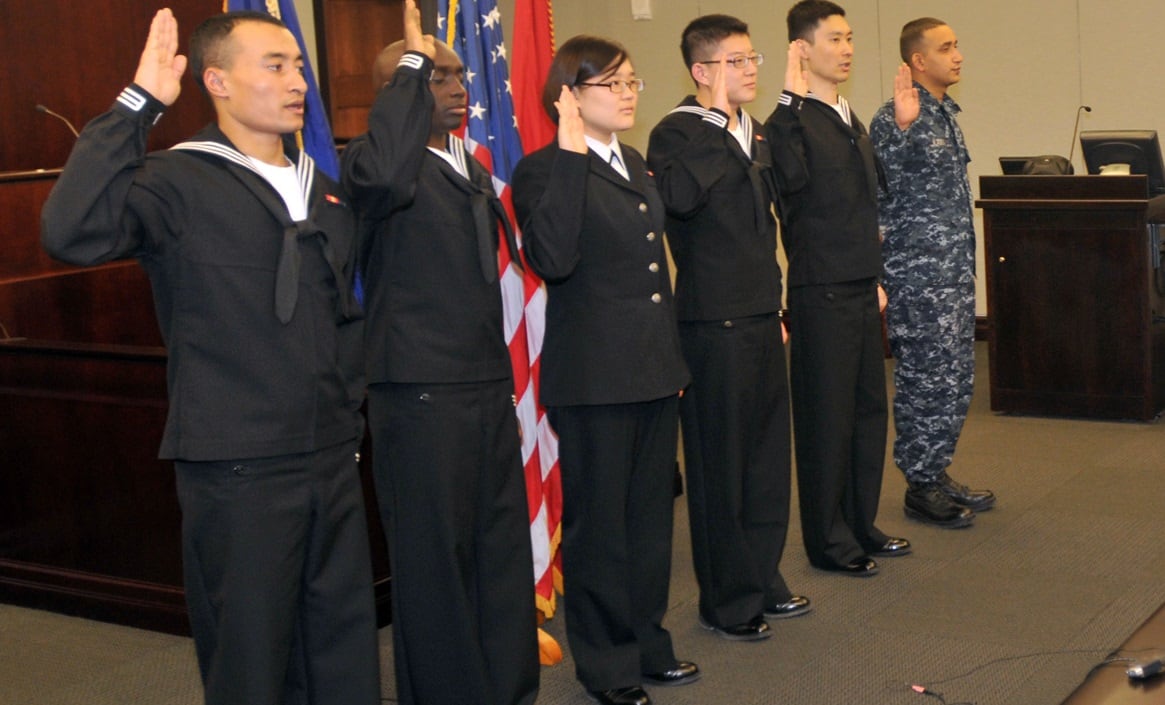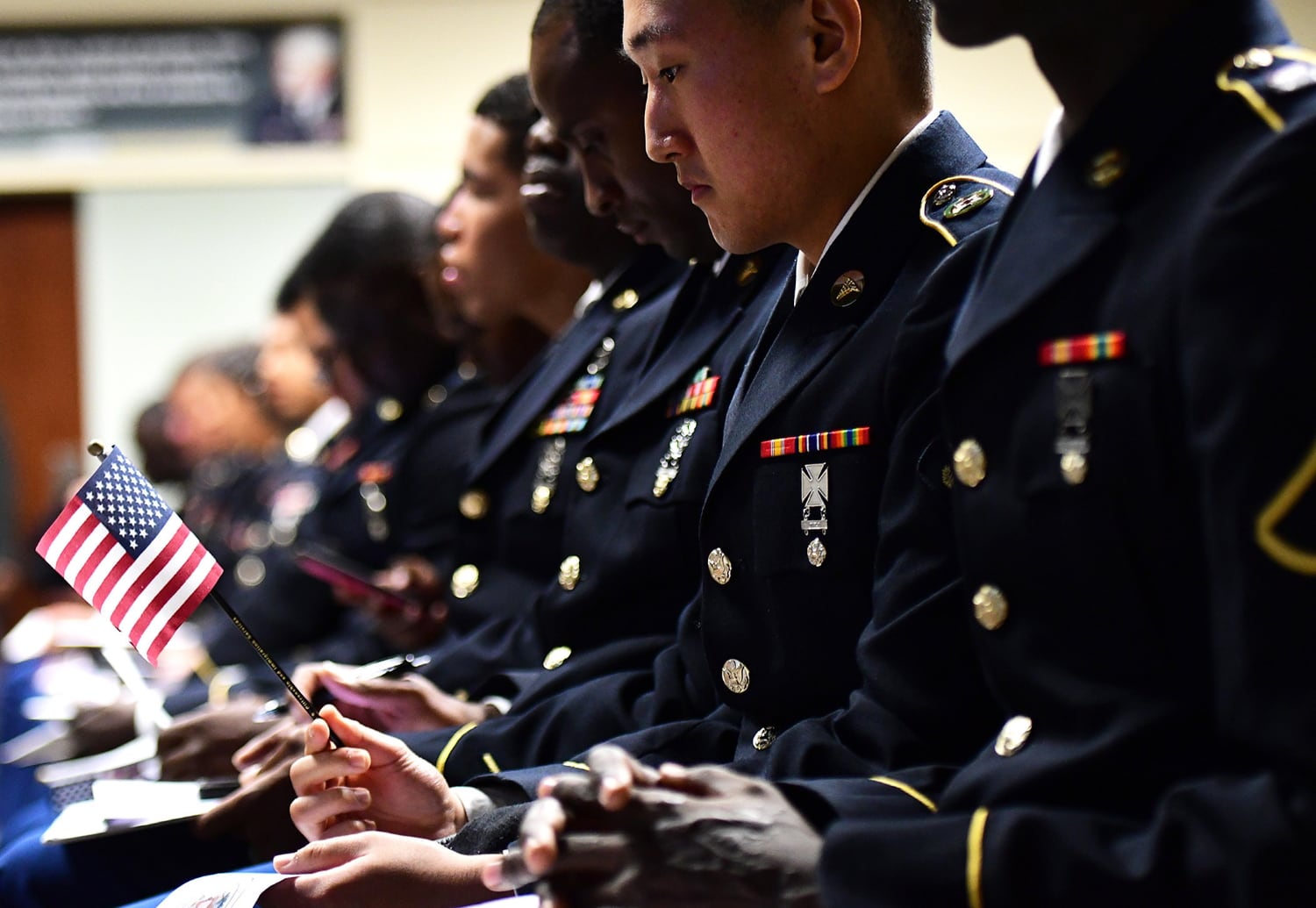In May 2016, I signed an eight-year contract with the U.S. Army Reserves. A native of Nepal, I’d recently received a Bachelor of Science in Mechanical Engineering from the New Mexico Institute of Mining and Technology. But even with my in-demand STEM skills, I knew it wasn’t easy to secure visa sponsorship from an employer. When a friend told me about a special military program for immigrants, I contacted a recruiter. He presented me with a simple and honorable exchange: a pathway to American citizenship in return for defending the country I hoped to call home.
At the time, I didn’t realize how much could go wrong — and my experience should be instructive for the new administration. As President Biden advocates for a more welcoming and fair immigration system, he cannot ignore foreign-born recruits who put their lives and livelihoods on the line to fight for America. We are part of an historic legacy of immigrant soldiers, yes, but we are also vital to the military and American national security.
In 2008, the Department of Defense launched the Military Accessions Vital to the National Interest (MAVNI) program, which allowed immigrants to join the military if they lived in the U.S. for two years and had either in-demand skills or language fluency. Approximately 10,400 troops signed up and began a variety of roles: training foreign militias, translating for Special Operations Command and aiding in disaster zones. I signed a contract in May 2016 with the understanding that after background checks were completed in roughly six to eight months, I’d start basic training and earn my citizenship.
But in October 2016, the Department of Defense began requiring more intensive background checks, which delayed the process. When Trump was elected, the checks became even more extensive; contracts were left to flounder or cancelled altogether. About 4,000 MAVNI recruits found their lives upended. Some fell out of status while waiting for the military to formalize their enlistments and were deported. Others began basic training, only to see their offers revoked without explanation. In the wake of these changes by the Trump administration, naturalization applications from immigrant enlistees dropped by 72 percent.
RELATED

I began drilling with my unit in Colorado, but was still waiting for my basic training orders when my recruiter called in September 2017 and asked me to turn in my military ID. He called me a “MAVNI loss.” I felt blindsided. Ultimately, I joined a class-action lawsuit against the Pentagon. I can’t speak to the details of the suit, but I know my journey has been less bumpy than others. When the government added additional layers of background checks, I was able to get a job as an associate R&D mechanical engineer. This allowed me to stay in the country legally, while I waited to be called up — a process that ended up taking over two years. That job saved me from deportation. I finally became a citizen in 2018. Today, I serve in the Colorado Reserves a few days every month.
It goes without saying that the American military should honor its contractual obligations. But what the U.S. did to MAVNI recruits also dishonors the legacy of foreign-born enlistees. Immigrants have proudly served in the military from its origins — just look at Alexander Hamilton, who played a decisive role in the American’s victory against the British at Yorktown. Immigrants or their offspring were 43 percent of the Union Army during the Civil War. Three hundred thousand immigrants fought for the Americans in World War II. Roughly a third of them were naturalized through their service. But the number of immigrants in the armed forces has fallen. Today only about 5 percent of active-duty recruits were born abroad. That’s problematic for our national security. The U.S. military has more than three dozen languages for which they have trouble finding fluent speakers, according to New American Economy. Roughly 14.6 percent of Dreamers speak one of those languages at home. Yet scores of Dreamers were barred from enlisting in recent years or were kicked out of MAVNI during its upheaval.
The good news is that change is happening. Last August, a federal court ruled that the Trump administration couldn’t deny U.S. military members a path to citizenship promised to them by Congress. Now President Biden must be proactive in opening pathways for immigrants to both serve and naturalize. I urge him to fully reinstate the MAVNI program, quickly process naturalization applications and wave penalties for soldiers who fell out of status while awaiting their orders. Let’s right the wrongs of the last two administrations so that immigrant recruits can be where they truly belong: in uniform.
Editor’s note: This is an op-ed and as such, the opinions expressed are those of the author. If you would like to respond, or have an editorial of your own you would like to submit, please contact Military Times managing editor Howard Altman, haltman@militarytimes.com.






